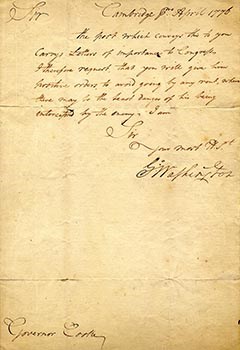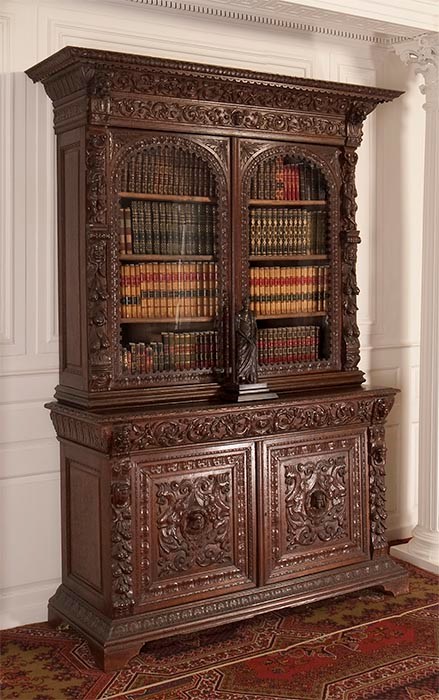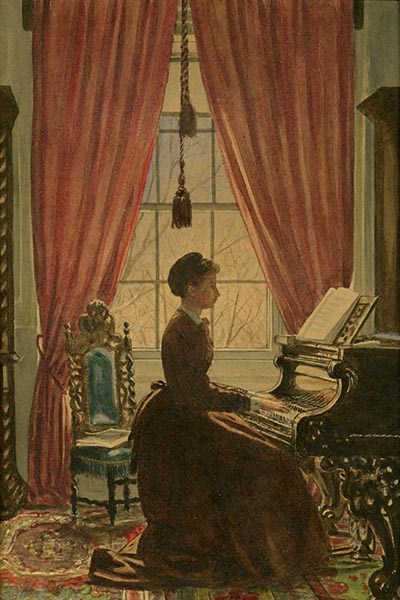

Left image
Right image

H.W.L. Dana Papers Military OfficeDuring 1775 and 1776 this room was used as a staff room and writing room for George Washington's aides. It would have been the busiest room in the house as Washington and his aides struggled to issue orders and handle the crush of correspondence coming and going. The Continental Army did not have the benefit of a supporting Department of Defense; its administrative functions were carried out in this room. While here, Washington identified the characteristics required in his subordinates to perform these critical duties. Renovated BallroomAs part of his expansion of the original Georgian structure in about 1793, Andrew Craigie enlarged this room towards the north. The library retains most of the changes made at that time. Craigie's changes to the house reflect the Federal style. The room was lengthened, and two fluted columns with Corinthian capitals supporting a heavy entablature were added in the middle of the long wall. He added the Blue Entry behind the dining room to keep the house square and to serve as an impressive entrance to his new grand room for entertaining. 
NPS Photo / David Bohl Books that Crowd My ShelfSix massive oaken bookcases line the outer walls of the library. They hold many of Henry Longfellow's foreign-language books: the nineteenth-century French poets in elaborate gold-tooled bindings, the Italian poets in white vellum, and the German poets in green leather. The 675 books on exhibit in the room today are a small fraction of the poet's library. Longfellow's 1875 poem "Travels by the Fireside" emphasizes the importance of his books, for personal pleasure as well as scholarly study:
An oak Elizabethan Revival library table with green baize panel stands in the center of the room. It was purchased by the Longfellows in the 1850s. Historic photographs make it clear that this table was often covered with piles of books that overflowed the shelves. As Longfellow wrote in his poem "Twelfth Night," "The busts of Grecian bards sublime / Smiled from their antique oaken cases." Busts of Homer, Sophocles, and Aeschylus still sit on top of three bookcases. They are complemented by a standing statue of Sappho by Thomas Crawford, a gift to Henry Longfellow by Crawford's widow in 1861. 
Music RoomThe Longfellows used the room for formal and informal family gatherings, musical events, children's programs, parties, and dances. The family appreciated good music, and Henry Longfellow recorded several evenings devoted to performances by guests to the home:
In 1897, Alice Longfellow replaced her parents' Chickering piano with the 1888 Model C Steinway grand piano in the room today. |
Last updated: February 2, 2022
